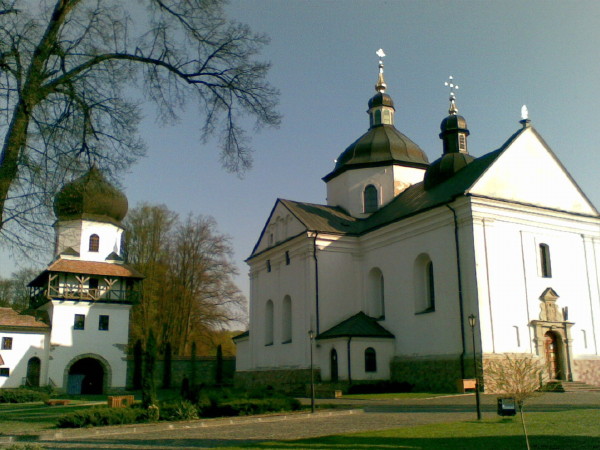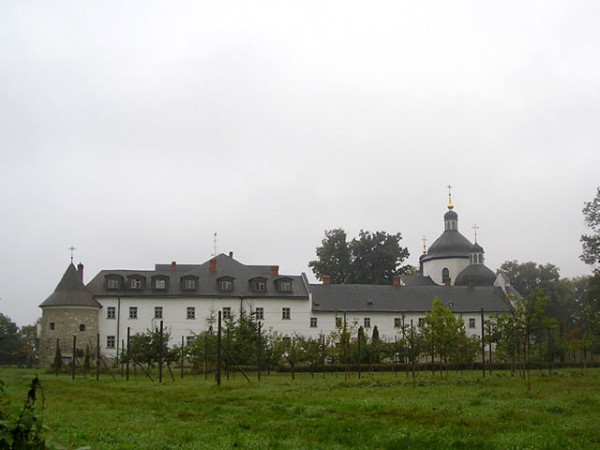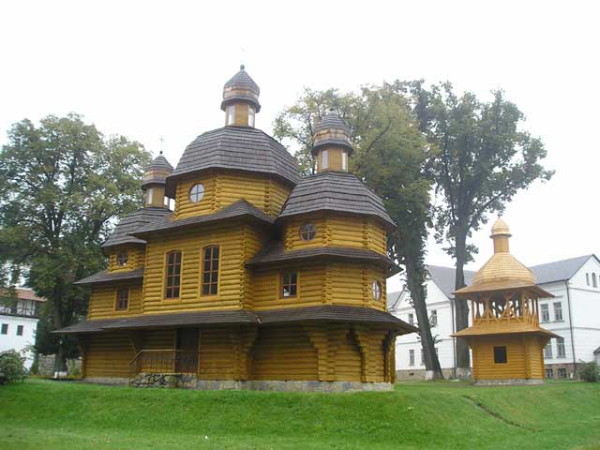Krekhiv Monastery
Krekhiv Monastery [Крехівський Свято-Миколаївський монастир; Krekhivskyi Sviato-Mykolaivskyi monastyr]. Famous monastery in the village of Krekhiv in the Zhovkva region, Lviv oblast. The monastery's patron saint was Saint Nicholas. It was founded at the beginning of the 17th century by the monk Yoil, and the large complex of churches and other structures was built in 1619–58. A stone wall surrounding the monastery was completed in 1669. In 1628 the monastery was granted the right of stauropegion, or autonomy, and at the beginning the 18th century it joined the Church Union of Berestia.
The Krekhiv Monastery is a typical Ukrainian wooden monastery-fortress. Its early patrons included the hetmans Bohdan Khmelnytsky, Petro Doroshenko, and Ivan Mazepa. The Church of the Assumption and its bell tower, dating from 1658, which were moved to the village of Krekhiv in 1775, are excellent examples of wooden church architecture of the period. There is a valuable iconostasis by the artist Master Vasyl of Lviv and a famous woodcut of the monastery by Dionisii Sinkevych (1699). The monastery had a large library, which housed the famous Krekhiv Apostolos and Krekhiv Paleia. From 1902 it was the novitiate for the Basilian monastic order in Galicia. Its two famous icons, one of the Virgin Mary and one of Saint Nicholas, attracted many pilgrims. Under Soviet rule the monastery was closed; its towers and walls were dismantled and many of its artistic treasures were destroyed.
[This article originally appeared in the Encyclopedia of Ukraine, vol. 2 (1988).]
.jpg)




.jpg)